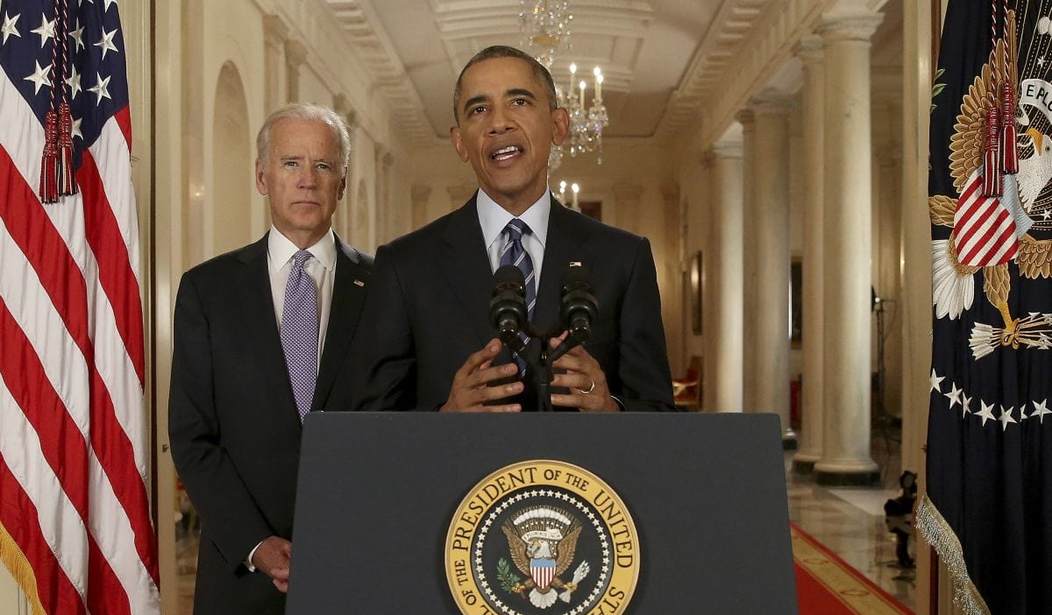And they want to impeach Trump?
The report by the Senate Permanent Subcommittee on Investigations revealed that under President Barack Obama, the Treasury Department issued a license in February 2016, never previously disclosed, that would have allowed Iran to convert $5.7 billion it held at a bank in Oman from Omani rials into euros by exchanging them first into U.S. dollars. If the Omani bank had allowed the exchange without such a license, it would have violated sanctions that bar Iran from transactions that touch the U.S. financial system.
The effort was unsuccessful because American banks — themselves afraid of running afoul of U.S. sanctions — declined to participate. The Obama administration approached two U.S. banks to facilitate the conversion, the report said, but both refused, citing the reputational risk of doing business with or for Iran.
“The Obama administration misled the American people and Congress because they were desperate to get a deal with Iran,” said Sen. Rob Portman, R-Ohio, the subcommittee’s chairman.
Issuing the license was not illegal. Still, it went above and beyond what the Obama administration was required to do under the terms of the nuclear agreement. Under that deal, the U.S. and world powers gave Iran billions of dollars in sanctions relief in exchange for curbing its nuclear program. Last month, President Donald Trump declared the U.S. was pulling out of what he described as a “disastrous deal.”
The license issued to Bank Muscat stood in stark contrast to repeated public statements from the Obama White House, the Treasury and the State Department, all of which denied that the administration was contemplating allowing Iran access to the U.S. financial system.
What did the administration think Iran was going to do with that $5.7 billion? Feed its people? Invest in infrastructure?
Or maybe fund terrorism.
This is not naivete. It might be incompetent stupidity, but not everyone in that administration was as dumb as Obama’s foreign policy “brain trust.” This was a conscious decision to secretly try to get around the UN and U.S. sanctions regime in order to give Tehran nearly $6 billion to play with.
And then lie about it to Congress and the American people.
Shortly after the nuclear deal was sealed in July 2015, then-Treasury Secretary Jack Lew testified that even with the sanctions relief, Iran “will continue to be denied access to the world’s largest financial and commercial market.” A month later, one of Lew’s top deputies, Adam Szubin, testified that despite the nuclear deal “Iran will be denied access to the world’s most important market and unable to deal in the world’s most important currency.”
Yet almost immediately after the sanctions relief took effect in January 2016, Iran began to complain that it wasn’t reaping the benefits it had envisioned. Iran argued that other sanctions — such as those linked to human rights, terrorism and missile development — were scaring off potential investors and banks who feared any business with Iran would lead to punishment. The global financial system is heavily intertwined with U.S. banks, making it nearly impossible to conduct many international transactions without touching New York in one way or another.
Former Obama administration officials declined to comment for the record.
It’s true that Iran was not entirely in a box as a result of the sanctions. They violated them with impunity, with the help of countries like North Korea and China. But it was critical for the sanctions to have any effect to keep Iran from participating in the international financial community. And that meant denying them access to dollars.
It appears that the Obama administration was far more concerned about Iranian treaty opponents than being truthful to Congress. At least, that’s their story and they’re sticking to it. Whatever misguided impulse led them to entertain — even temporarily — a secret license for Iran to circumvent sanctions, it shouldn’t have caused any American president to enable the Iranian terrorist regime.










Join the conversation as a VIP Member